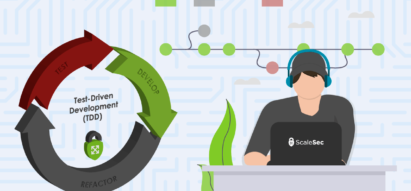Artificial intelligence (AI) and automation are rapidly transforming how we work, with the potential to alter the landscape of employment and job markets fundamentally. These technologies automate various tasks and processes, from data analysis and customer service to manufacturing and transportation. While AI and automation offer many benefits, including increased efficiency and productivity, they also raise complex and often controversial issues related to employment, ethics, and the future of work.
Let’s, take a deeper look:
One of the most significant impacts of AI and automation is the potential for job displacement. As machines and algorithms can perform tasks previously carried out by humans, there is a risk that specific jobs will become obsolete. Some estimates predict the automation of up to 50% of current professions in the next decade. For a more concrete prediction, we can refer to the World Economic Forum prediction that AI will replace over 85 million jobs by 2025. However, it is essential to note that not all jobs are equally at risk.
The impact of automation will likely vary depending on the sector, the specific tasks involved, and the level of education and skill required. Jobs that involve repetitive tasks or AI con do them are more likely to be automated.
In contrast, jobs that require creative thinking, problem solving, or social interaction are less likely to be replaced.
In addition to the potential for job displacement, AI and automation also have the potential to create new job opportunities. As these technologies become common, there will be a growing demand for workers with the skills and knowledge to design, develop, and maintain them. There may also be new job opportunities in data science, machine learning, and industries in that AI and automation transforms, such as healthcare, education, and transportation.
While the potential benefits of AI and automation are clear, there are also significant ethical and social implications to consider. One key concern is the potential for bias in the algorithms and systems underpinning these technologies. Suppose the data used to train AI systems is biased. In that case, the AI may also be biased, leading to unfair outcomes and discrimination. There is also a probability that AI and automation will widen the gap between those skilled and educated and those without, exacerbating existing inequalities.
The future of work in the age of AI and automation is complex and uncertain, and the role of government and policy will be crucial in shaping this future. Governments have many tools to address the challenges and opportunities presented by these technologies, including regulation, training and education programs, and support for workers and industries. They should consider them and not put them aside until it’s too late.
When not to worry?
Artificial intelligence (AI) is a rapidly advancing field, and there are many areas in which AI is already being used to augment or replace human capabilities. However, there are also several human traits and abilities that AI has not yet been able to replicate. So, till AI cannot replicate these traits, you are somehow irreplaceable by AI. Some examples include:
- Emotion and empathy: AI is currently unable to fully understand or replicate the complexity of human emotions and the ability to empathize with others.
- Creativity: AI can perform creative tasks such as writing poetry, composing music, and creating visual art. However, the creativity of AI-generated output is limited by its training data and the programmed algorithms, and it can’t go beyond that.
- Intuition: Humans can make decisions and solve problems based on intuition and past experiences. AI can make decisions based on its training data, but it cannot currently make decisions based on intuitive or experiential knowledge.
- Common sense: AI can process vast amounts of information but cannot currently understand common sense and make inferences or generalizations that humans find easy.
- Ethics and morality: AI can process and analyze large amounts of data, but it cannot currently understand and make moral or ethical decisions that align with human values.
- Leadership, Teamwork, and social skills: AI can process and analyze large amounts of data and perform specific tasks, but it cannot currently lead a team, build trust, resolve conflicts, and other critical social skills humans possess.
AI constantly evolves and may overcome many limitations as research and development continue. Still, for now, AI cannot replace some critical human traits.
Which jobs will be replaced by AI sooner than the others?
Artificial intelligence (AI) has the potential to automate or augment a wide range of tasks, which could lead to changes in the job market. However, as mentioned, AI cannot easily replace some jobs requiring complex decision-making and general and multidisciplinary knowledge. On the other hand, some jobs that are likely to be affected by AI include:
- Data entry and analysis: AI can process and analyze large amounts of data quickly and accurately, which could lead to the automation of jobs such as data entry and analysis.
- Customer service: AI-powered chatbots and virtual assistants are already being used to handle customer service inquiries, which could lead to the automation of specific customer service jobs.
- Transportation and logistics: developed and tested Self-driving cars and drones, which could lead to the automation of jobs such as truck and taxi drivers and delivery persons.
- Manufacturing and assembly: using Robotics and AI in manufacturing and assembly already, which could lead to the automation of jobs such as assembly line workers.
- Financial analysis and trading: AI is being used to analyze financial data and make trades, which could lead to the automation of jobs such as stock traders and financial analysts.
- Surveillance and security: using AI-powered cameras and facial recognition software for surveillance and security could lead to the automation of jobs such as security guards.
So, what can individuals and organizations do to adapt and thrive in the changing work landscape?
One important strategy is to invest in upskilling and reskilling. As AI and automation transform the job market, workers must stay current and develop new skills in demand. This str may involve learning new technologies or developing expertise in data analysis, machine learning, or coding as it is predicted that AI will almost create over 1.7 million job Opportunities by 2025. It is also vital for organizations to support their employees and create a culture of continuous learning.
In conclusion, AI and automation are transforming the way we work, with the potential to both disrupt and create new opportunities. While there are many challenges to navigate, staying informed and proactive means individuals and organizations can position themselves to thrive in this changing landscape.
As a final footnote, we, the software engineers and tech guys should not fear the spread of AI and Automation.
We have to look at it as new opportunities for further career development.


Leave your comment